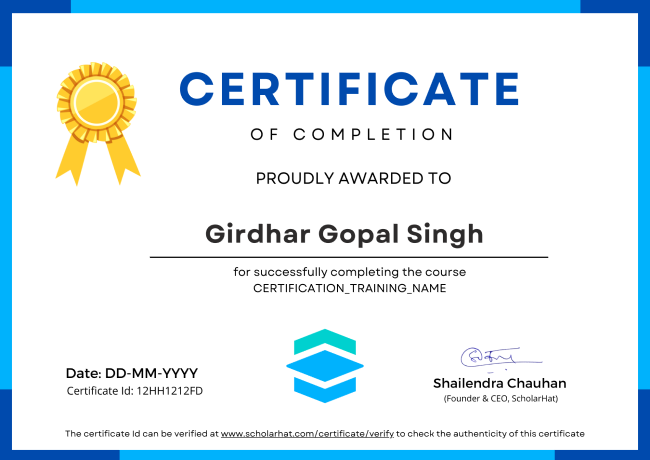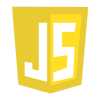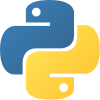This training helped me to learn ASP.Net MVC and Angular Development Program to develop web applications in more efficient way. I got what I was looking for, basically to learn Typescript. Training quality is excellent and the trainer also has good Teaching skills to teach each and every topic, well explained. Real-Time project Development helped me for basically the payment gateway process and AngularJS integration with MVC. The ScholarHat Staff is very supportive and provides all the help that we used to be required.
Free Java Course Overview
Looking to learn Java programming for free and build real coding skills that matter? You’re at the right place! ScholarHat’s Java online course free with certificate, is designed for absolute beginners and self-learners who want to master Java step by step — without paying a rupee.
Java is one of the most powerful and in-demand programming languages used in Android development, backend systems, web apps, and enterprise solutions. In this free Java online course, you'll learn everything from Java basics to advanced concepts like OOPs (Object-Oriented Programming), exception handling, file I/O, and more — all with practical examples and projects.
This course is perfect for students, job seekers, and working professionals who want to strengthen their resume or kickstart a software development career. And yes, you’ll get a Free Java course certificate upon completion to showcase your skills to employers or clients.
💡 Don’t just search “free Java learn” — start learning with ScholarHat’s expert-designed Java course today, completely free and accessible online!
Why Learn Java Programming?
- Platform Independence: Write once, and run anywhere with Java's robust cross-platform capabilities.
- Foundation for Advanced Development: Essential for Android development and large-scale enterprise systems.
- Versatility: Suitable for desktop, web, mobile, and cloud applications.
- Object-Oriented Programming: Master OOP principles that simplify complex programming tasks.
- Career Opportunities: In-demand language with diverse job roles in software development.
Career Opportunities with a Free Java Course Certificate
- Software Developer: Build Java to create web, mobile, and enterprise apps.
- Android Developer: Design feature-rich mobile apps for the Android platform.
- Backend Developer: Create powerful backend systems for web apps.
- Full-Stack Developer: Responsible for both the client and server sides of applications.
- DevOps Engineer: Use Java to automate deployment pipelines and manage apps.
- Data Engineer: Use Java to manage large datasets and ETL pipelines.
Tools for Learning Java Programming
- Code Editor: Use IntelliJ IDEA, Eclipse, or Visual Studio Code for writing and managing Java code efficiently.
- IDE: For a full development and debugging environment, use IntelliJ IDEA or NetBeans.
- Compiler: Use the Java Development Kit (JDK) to compile and execute Java programs.
- Debugger: Use built-in debugging tools in popular IDEs for code analysis.
- Online Platforms: Practice coding on platforms like Scholarhat, & LeetCode for hands-on experience.
- Version Control: Use Git to track and manage code changes effectively.
Java Free Course Features
- Beginner-Friendly Curriculum: Designed for students new to programming, this curriculum covers key Java topics in an easy-to-follow manner.
- Structured Learning Path: Move through well-organized sections, starting with the basics and progressing to more advanced topics.
- Interactive Lessons: To encourage learning, combine video tutorials and hands-on practice.
- Core Topics Covered: Learn about variables, loops, object-oriented programming concepts, data structures, exception handling, collections, & multithreading.
- Free Certification: Showcase your abilities by receiving a free certificate upon completion.
- Self-Paced Learning: Course materials are available 24/7, allowing you to learn at your own pace.
Eligibility Criteria for Learning the Java Programming Course
Included in this Course
Video Course 73 Videos
Introduction to Java
Variables
DataTypes
Wrapper Classes
Conditional Statements
If Else Statement
Switch Statement
Operators
Course Overview
For Loop
while And Do While
Jump Statement
Arrays
Strings
Oops java Introduction
Class and Objects
Encapsulation
Constructor
Inhertiance
Polymorphism
Interfaces
Collection Framework
Generics
This course includes
Free Java Course Certification FAQs
- Are there any hidden charges for the certification?
No, the course and certification are completely free. There are no hidden charges. - How can I get the free certification?
To get the free certification, you need to enroll in the course, complete all the required modules, and pass the final assessment or quiz - Can I earn multiple free certifications?
Yes, you can enroll in multiple courses and earn free certifications for each course you successfully complete. - Will the certification mention that the course was free?
No, the certification will only highlight your achievement and not mention whether the course was free or paid.

Our Students Reviews
This training helped me a lot in terms of improving my skills for learning New technologies. I enhanced my skills through the latest and most popular skills. Training material is very helpful and given in strategic way & whenever we require any help they are always with us. The process of providing training by the Trainer is excellent. With this training, I improved my problem-solving skills. Yes, I was looking for a hike and I did it due to ScholarHat. Thank you Sir thank you all.
Sandeep Shukla
(Sr. Software Engineer.)
The trainer has a profound understanding and knowledge on the subjects he chooses to teach. ScholarHat Faculty has been utterly helpful. Staff members are supportive and motivating too. Just beyond expectations!! Training touches upon on all the topics talked about in a particular course curriculum without giving any of them a miss. The training is a great deal to accomplish a particular skill-set in your profile as the training covers all the important aspects and topics of the technology one needs to know to have a good understanding of that technology. I am sure it will be of immense help and importance to my career from ScholarHat.
Shweta Talraj.
(Sr. Software Developer.)
Training is all about covering all the topics, which I was looking for, definitely I got what I wanted. The explanation of each n every topic was too clear, that was done only on through the Trainer. Designing of syllabus of MERN full stack Development is tremendous, everything is step by step and covers almost all the concepts using in real-life development. I understand, that the training also requires audiences to self-learn, lot of interaction is needed by Candidates. A great experience with ScholarHat as well as the Faculty of ScholarHat was very calm and impressive to interact with us which is quite appreciable.
Aditya Mishra
(Software Engineer at HCL Technologies )
ScholarHat Training is career turning where I have learnt MERN Stack and enhanced my concepts & Development skills. The best thing is that they always introduce the latest technology during Training and update skills with the latest industry trends available in IT industries also upcoming ones. I am especially impressed with the teaching techniques of Mr. Shailendra Chauhan. I would like to suggest you as well if you are looking for something different.
Pardeep Barak
(Sr. Software Developer)
Explore More Free Courses
Frequently Asked Questions
Q1. What topics are covered in the Free Java Online Course?
The course encompasses Java fundamentals, including object-oriented programming (OOP), data structures, exception handling, multithreading, collections, and real-world project development.
Q2. Is the Java course truly free?
Yes! ScholarHat offers the Java course entirely free, providing access to all video tutorials, hands-on labs, quick notes, and a certificate upon successful completion.
Q3. Will I receive a certificate after completing the course?
Absolutely! Upon finishing all modules and passing the final assessment, you'll receive a certificate of completion from ScholarHat to showcase your skills.
Q4. How long does it take to complete the course?
The course is structured to be completed in 21 days, with approximately 1–2 hours of study per day. However, it's self-paced, allowing you to learn at your own convenience.
Q5. What tools do I need to start learning Java?
You'll need a code editor (like IntelliJ IDEA, Eclipse, or Visual Studio Code), the Java Development Kit (JDK) to compile and execute Java programs, and optionally, an IDE like NetBeans.
Q6. How will this course benefit my career?
Learning Java opens up opportunities in software development, Android development, backend development, and more. It's a foundational skill valued in various tech roles.
Q7. Can I learn Java in 21 days?
Yes, you can learn the basics of Java in 21 days if you stay consistent and follow a focused learning plan. In three weeks, you can cover fundamental concepts like syntax, data types, loops, conditionals, classes, and object-oriented programming. However, becoming truly confident in Java — especially for real-world projects or interviews — takes regular practice beyond 21 days. Use this period to build a strong foundation, and keep learning by building projects and solving coding challenges.
Q8. Do I need programming experience to join this Java course?
No prior coding experience is needed. This course is ideal for beginners who want to learn Java from scratch and understand how Java works in real-world applications.
Q9. Is this Java course suitable for students and working professionals?
Yes, the course is designed for both students and professionals who want to learn Java quickly. It's flexible and can be completed at your own pace.
Q10. Will this free Java course help me in job interviews or placements?
Definitely. The course not only teaches you Java programming basics but also prepares you for technical interviews by focusing on concepts used in real-world development and coding interviews.
Q1. Are these coding courses really 100% free?
Yes! All our listed courses are completely free. You can access all learning materials, videos, and resources without paying a single rupee.
Q2. Who can join these free programming courses?
Anyone! Whether you're a beginner with no coding experience or someone looking to upskill, our courses are designed for all levels.
Q3. Are these courses beginner-friendly?
Absolutely. Every course includes step-by-step guidance, real-life examples, and practice projects to help you learn effectively from scratch.
Q4. Are the free courses self-paced?
Yes, all our courses are fully self-paced. You can learn anytime, anywhere, and from any device that suits you.
Q5. Will these courses help me get a job?
Our focus is on job-ready skills. The courses are built to teach industry-relevant knowledge that employers value, including hands-on coding and real-world projects.
Q6. Can I get career advice or help with interviews?
Yes! Along with courses, we offer career resources like interview prep eBooks, resume tips, and mock interview support.
Q7. Will learning from free courses be enough to get a developer job?
While free courses provide strong fundamentals, combining them with real-world projects, internships, and advanced practice can significantly boost your chances of landing a job.



 4.7/5
4.7/5












